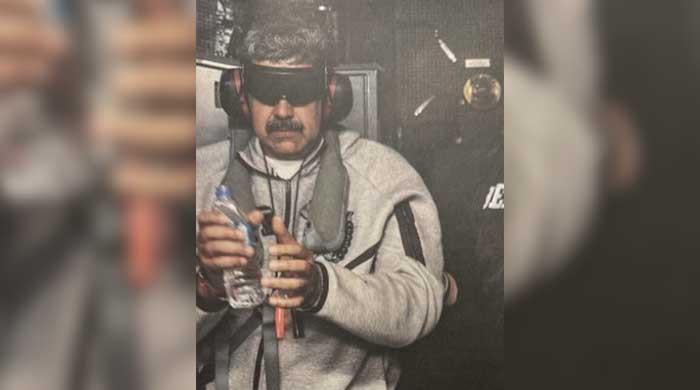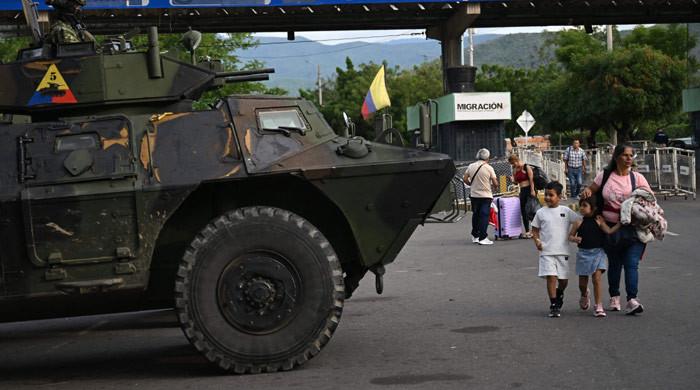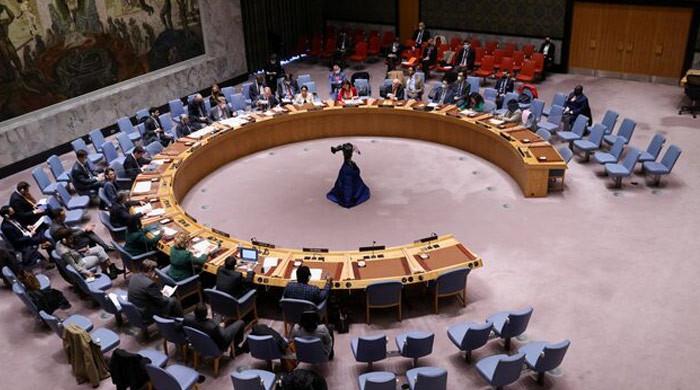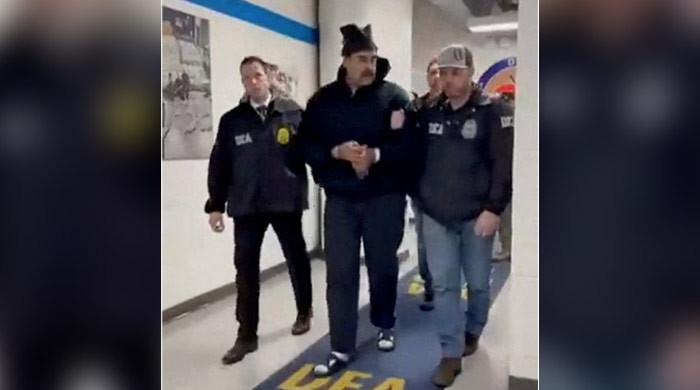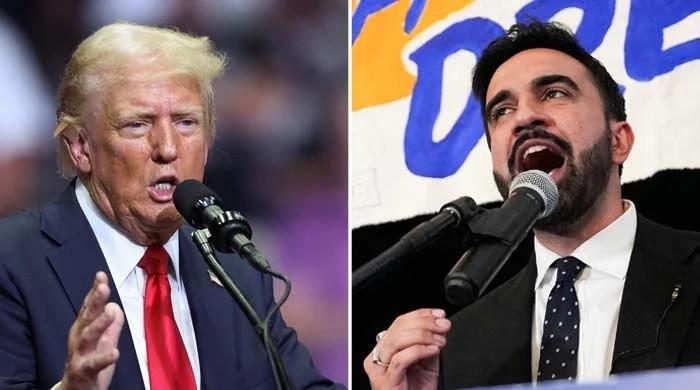Trump administration took far tougher stand on Pakistan: Pompeo
Pompeo says Trump administration has taken US defense cooperation with India to new heights, solidified "common vision for the Indo-Pacific"
June 13, 2019
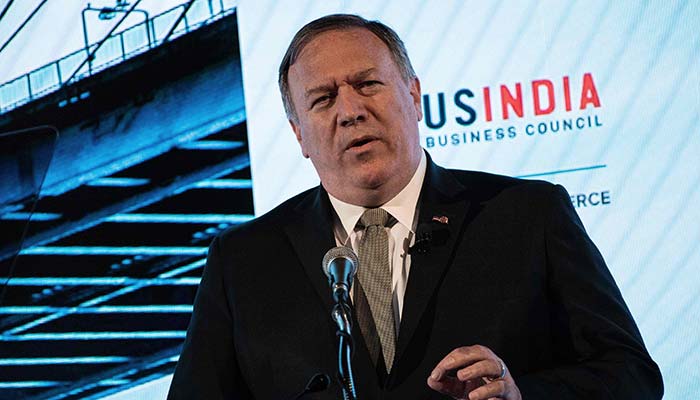
WASHINGTON: US Secretary of State, Michael Pompeo on Wednesday said that the Trump administration has taken a far tougher stand on Pakistan as compared to previous presidents.
Speaking at the 44th annual meeting of the US-India Business Council, the Secretary recounted steps taken by various US presidents to strengthen closer relations with India. He told the audience that President Bush inked a historic civil nuclear deal, whereas President Obama granted India 'Major Defense Partner' status.
"Under President Trump, we have taken our defense cooperation to new heights, solidified our common vision for the Indo-Pacific," the secretary said, further claiming that the Trump administration had taken a far tougher stand on Pakistan, India' regional rival.
During his short remarks at the event, the Secretary said that both countries must embrace strategic framework. "We respect India as a truly sovereign, important country, with its own unique politics and its own unique strategic challenges," he said adding, "We realise it's difficult to deal with the likes of China and Pakistan from across the ocean than it is when they are on your borders."
Secretary Pompeo also announced that President Obama had supported India's quest for a permanent seat on the UN Security council, and that's "a position that the United States continues to support."
He said that the Trump administration has already enabled American companies to export more high tech items to India. "This includes cutting edge defense platforms like armed UAVs and ballistic missile defense systems," he said. "We have already launched the Asia-EDGE program to help raise private capital to meet its energy and security needs for years to come."
The secretary further said that the first batch of Apache helicopters were coming off Boeing's production line. "Lockheed Martin's F-21 and Boeing's F/A-18 are state-of-the-art fighters that could give India the capabilities it needs to become a full-fledged security provider throughout the Indio-Pacific."
Addressing the audience at the US Chamber of Commerce, he said it was only natural that the world's most populous democracy should partner with the world's oldest democracy to maintain our shared vision throughout the Indo-Pacific.
The Indo-Pacific strategy, submitted in a lengthy report by the Department of Defense earlier this month, has dropped Pakistan as the main ally in South Asia while seeking to bond with five other countries of the region.
While the main objective of the strategy is to counter Russia and China's influence, it generously offers military and economic partnership to India, Bangladesh, Nepal, Sri Lanka, and Maldives.
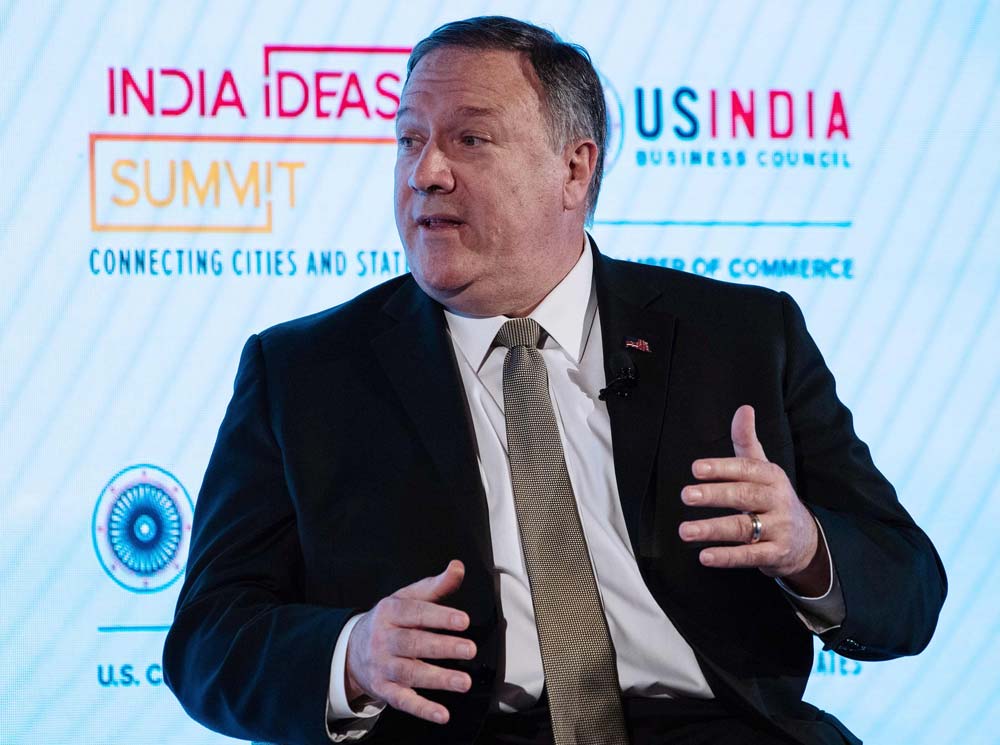
US open to dialogue with India after trade snub
AFP adds: The United States is open to dialogue with India after taking away its preferential trading status, Secretary of State Mike Pompeo said Wednesday as he prepares to travel to New Delhi.
"I'm sure we'll broach some tough topics," Pompeo said in a speech on US policy toward India.
"We'll probably discuss the recent decision on the GSP program," he added, referring to the Generalized System of Preferences.
India has been the single biggest beneficiary of that decades-old US program, which allowed it to export $5.7 billion worth of goods, duty-free, to the US in 2017, according to figures from the US Congress.
President Donald Trump removed New Delhi from the system in early June, even as Washington tries to boost ties with India as a counterweight to China and despite Trump's stated good relations with Prime Minister Narendra Modi.
In removing India from the GSP, Trump complained that it does not provide US goods with equitable and reasonable access to its market.
"We remain open to dialogue, and hope that our Indian friends will drop their trade barriers and trust in the competitiveness of their own companies," Pompeo said.
He said that countries that have offered the US fair and reciprocal trade since Trump came to power in January 2017 have "seen America open up to them and they've seen real opportunity."
Pompeo will visit India as part of a tour of Asia from June 24-30 with the aim of underlining the importance of US ties with India after Modi's re-election this month.
On Wednesday, Pompeo called for a strengthening of cooperation with India in defense, energy and space, and defended the US vision of an Indo-Pacific region that is "free and open" – an idea designed to push back against the expansionist aspirations that Washington sees in China.
"We realise it's different to deal with the likes of China or Pakistan from across an ocean than it is when they are on your borders," Pompeo said.




